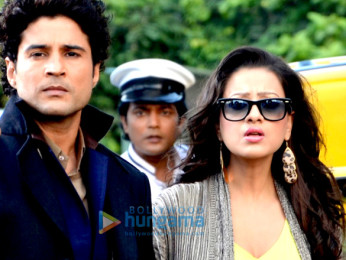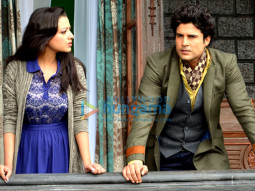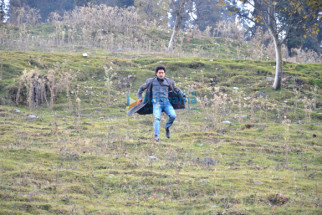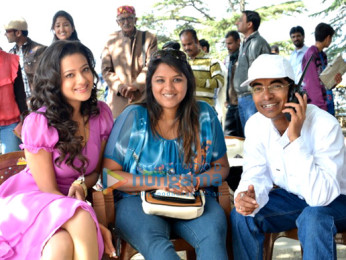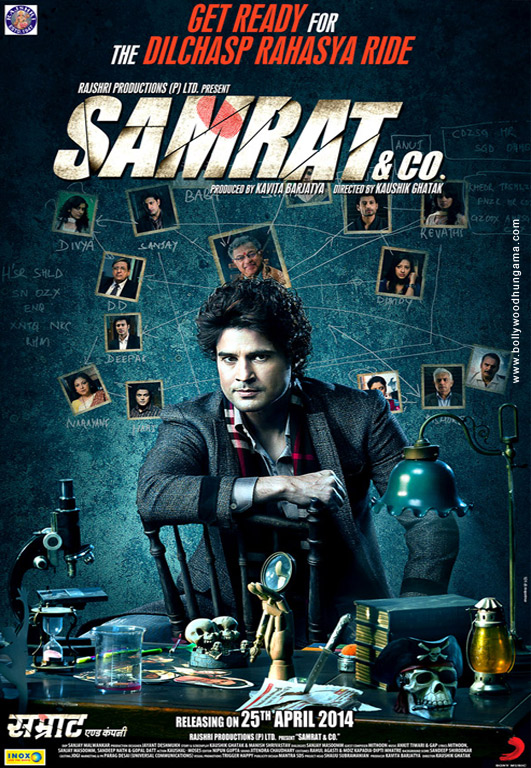Music: Ankit Tiwari, Mithoon & Gap
Lyrics: Sanjay Masoomm, Mithoon, Sandeep Nath & Gopal Datt
Music Label: Sony Music
Expectations:
There are few expectations from this score because of the thriller genre. However, a suspense thriller is usually a hit when it has great music.
Music:
The music works, and the film's success might take it to bigger heights. Of the two standout tracks in the album, 'Sawaalon Mein' is sung by Shreya Ghoshal with unbridled passion. The song falls in the genre of haunting songs that began with 'Aayega aanewala' in Mahal, with Lata Mangeshkar following this classic up with several milestones. And Shreya is her illustrious successor to this genre, reflecting a definite finesse in her nuanced singing that was missing in such songs when they were rendered by singers others after Lata.
Lovingly created by Ankit Tiwari, who seems to be evolving into a composer with a decent range, with snazzy orchestration that enhances the melody's haunting feel, it is anointed by good lyrics by Sandeep Nath ('Sawaalon mein yeh kaisi zindagi / Gumaan hai gumaan / Nazar yeh kisko dhoondti / Dhuaan hai dhuaan').
But the song overwhelmingly belongs to Shreya, who anoints the song with a lofty dimension with her skilled and almost strategic vocal nuances, almost all of which are raag-based and show her effortless grasp of classical intricacies.
And maybe this is the sole element missing in Chinmayi Sripadaa's rendition of the otherwise-superlative mood creation, 'Shukr Tera', written and composed by Mithoon. Chinmayi's good, as tranquil as the genre of the song needs, but one gets the feeling that she could have opened up more and made this slow, lovely melody bloom to its full potential.
Co-singer Arijit Singh's vocals are erratic: if he gets some lines as husky as needed, in the rest, he sounds a tad too 'un-soft', which does not match the mood of the song.
This time, the brilliant lyrics dominate ('Aisa kabhi dekha nahin / Na kabhi bhi kahin suna / Denewala sab dekar bhi / Keh raha hai shukriya'), and the music could have had a bigger and more acoustic sound.
The song's other version 'Humnava' is essayed by Gajendra Verma with Chinmayi. Mithoon tries to impart a slight Sufi effect in this version, while Chinmayi's version has the same words as in the first part. Gajendra, we must say, sings well. The overlay of the two voices is a smart decision, as it adds charm and variety to this version.
The lead track, 'Tequila Vakila' (Shreya with Ankit) is a 'with-it' dance number, and the words have a situational relevance. Shreya gets into "item" zone while Ankit sings in Vishal Dadlani mode. The lyrics (by dialogues writer Sanjay Masoomm) are okay, with a blend attempted between a modern item number and those old meaningful dance numbers wherein the unrelated-to-the-plot dancer's words reflected the main characters' states of mind.
The title-track brings in a mix of recitation and singing with Benny Dayal leading the vocals. Gopal Datt, the lyricist, is one of the three members of the band GAP (Gopal, with Anand and Pavan) and does a neat job. The music follows the mood, although we would have preferred a softer sound.
There is also a 'Samrat's Theme' by background music director Sandeep Shirodkar, which is competent by itself, but obviously does not add anything to the audio value.
Overall:
The Rajshri banner has disappointed musically in all their films after Main Prem Ki Deewani Hoon (2003), which was above average. This time, they pleasantly surprise us with a neat soundtrack.
The downside is that this music needs adroit promotion, which does not seem to be happening. It will therefore have to rely on the success of the film to showcase the musical merits, despite the trendy Aashiqui 2 composers Ankit and Mithoon shouldering the main musical responsibility.
Our Pick:
'Shukr tera', 'Sawaalon mein', 'O humnavaa'


